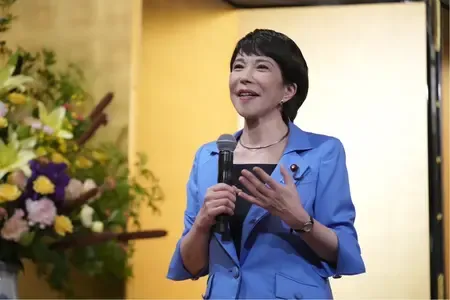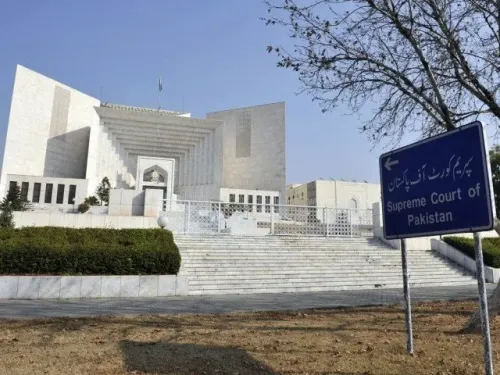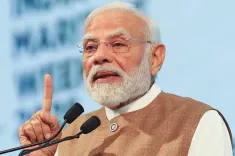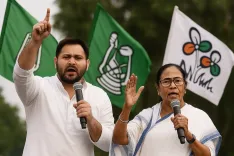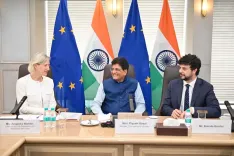Trump Criticizes Biden's Family Pardons
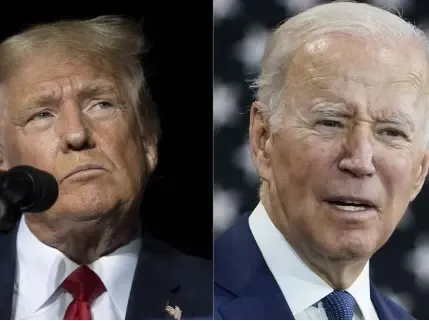
Synopsis
Key Takeaways
- Trump criticized Biden's family pardons.
- Pardons were issued just before leaving office.
- Trump learned about the pardons after his speech.
- Biden cited political motivations for the pardons.
- Trump plans to discuss the issue further later.
Washington, Jan 21 (NationPress) - Former President Donald Trump has voiced his disapproval of ex-President Joe Biden's decision to grant clemency to family members, which he executed as one of his final actions before exiting the White House on Monday.
Trump criticized Biden during a speech at the Capital One Arena, where he commented on the unexpected pardons given to Biden's family in the last moments of his presidency.
"Did you know that Biden, while I was delivering my speech, pardoned his entire family?" Trump remarked.
"His brother, the entire situation, was pardoned. Can you believe that happened while I was speaking? Did everyone hear my speech? Did you enjoy my speech? Thank you," he added.
Trump mentioned that his aides advised him to keep his inaugural address less confrontational, suggesting he avoid discussing Biden's family pardons or any potential pardons related to the January 6 defendants.
However, he later appeared to contradict himself when he told supporters he learned about the pardons only after finishing his address.
"Can you fathom it? He's issued these pardons — do you know why he did it while I was speaking? So I couldn't address it," Trump stated.
"I was delivering my speech, unaware he (Biden) had done it. Once I completed my remarks, they informed me, 'Sir, he pardoned his entire family.' I thought, 'Oh, can I return to discuss this?'"
"Somehow, that wouldn't come off as very graceful," he continued.
"Our First Lady would advise, 'Please don't do that.' There will be ample time to discuss this, and we shall."
During a session to sign executive orders, Trump labeled Biden's pardons as "unfortunate," but indicated he would refrain from further comments at that moment.
"We won't delve into it now. There will be plenty of time to address it," the President stated.
In the closing hours of his presidency, Biden granted pardons to Anthony Fauci, retired General Mark Milley, members of the House January 6 investigative committee, as well as to James B. Biden (Biden's brother), Sara Jones Biden (Biden's sister-in-law), Valerie Biden Owens (Biden's sister), John T. Owens (Biden's brother-in-law), and Francis W. Biden (Biden's youngest brother).
Biden expressed, "I believe in the rule of law, and I am hopeful that our legal institutions will ultimately triumph over political motivations," but noted that the pardons were essential to protect against "unfounded and politically driven investigations" that could "disrupt the lives, safety, and financial well-being of targeted individuals and their families."
In December 2024, Biden also pardoned his son Hunter Biden, stating that Hunter had been unfairly targeted due to being the President's son.
This decision attracted backlash from legislators and from then-President-elect Trump, who condemned the pardon as an "abuse and miscarriage of Justice" and questioned why Biden hadn't pardoned any of the "hostages" imprisoned following the January 6, 2021, Capitol riot.

